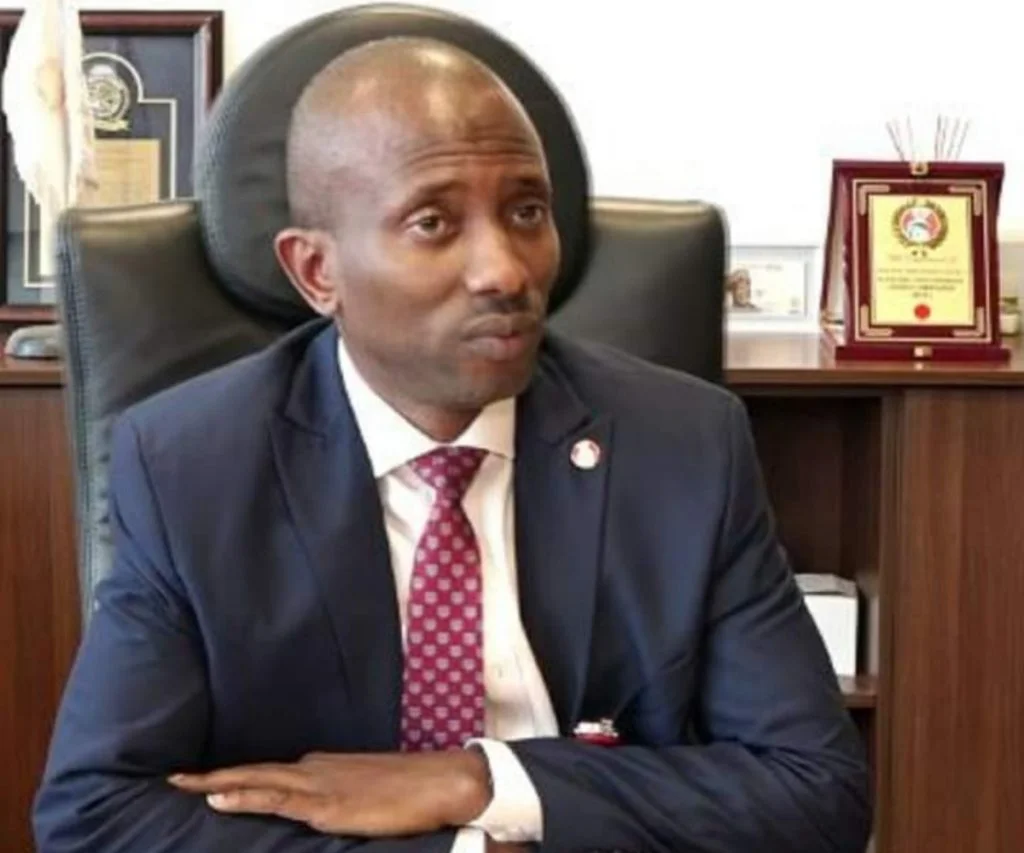By Suleiman Shehu
Mr Abdulkarim Chukkol, Acting Executive Chairman of the Economic and Financial Crimes Commission (EFCC), on Thursday sought the continued support of the media against money-laundering and cyber crime in Nigeria.
Chukkol said during a media training organised by the commission in Ibadan that the media’s suppport would help to reduce money-laundering and cyber crime to the barest minimum.
The News Agency of Nigeria (NAN) reports that the training was tagged “Workshop on Effective Reporting of Economic and Financial Crimes”.
Chukkol, who was represented by Halima Rufa’u, the Acting Commander of EFCC’s Ibadan Zonal Office, decried the worrisome challenge faced with the involvement of youths in cyber crime within the zone.
He noted that this was even in spite of the commission’s efforts in enforcement and enlightenment.
The Acting Executive Chairman said excuses bordering on ignorance of the law would not be entertained when it comes to established corrupt practices or money-laundering activity.
“The EFCC is determined to ensure that anyone who steals from the public treasury and their accomplices under whatever guise are brought to justice,” he said.
Chukkol urged the media to continue to align itself with the progressive aspirations of Nigerians towards reducing corruption to the barest minimum, if not completely eliminated.
“I will like the media to educate family members, friends of politicians and others holding political offices not to participate in money-laundering activities.
“They should be told that they run the risk of going to jail if they allow their companies or bank accounts to be used to launder proceeds of illegal activities.
“Under the Money-Laundering Act 2022, family members and close allies of politicians, public office-holders, including top civil servants, are now classified as Politically-Exposed Persons,” he said.
The EFCC Acting Executive Chairman said there was now more robust regulation of the activities of those entities which are vulnerable to money-laundering.
“Through the commission’s enforcement activities, recoveries running into several billions of Naira have been recorded and the country’s anti-money laundering framework strengthened.
“A key component of this framework is the reinvigorated Special Control Unit against Money-Laundering (SCUML)
“SCUML is a system used in driving the fight against money-laundering and illicit financial flows among Designated Non- Financial Businesses and Professions (DNFBPs),” he said.
Also speaking, Mr Wilson Uwujaren, a Deputy Commander with EFCC, appealed to the media to help sensitise the youths against internet-related fraud activities.
Uwujaren, who is also the commission’s spokesperson, said the workshop was designed to upgrade the skills of journalists to enable them discharge their duties more efficiently as financial crime reporters.
“The decision to engage you all in a training session is buoyed by the appreciation of the fact that you occupy a strategic place in the fight against corruption,” he said.
In his remarks, Mr Larry Aso, an Assistant Commander of EFCC (ACE I), said the Money-Laundering (Prevention and Prohibition) Act 2022 made prevention and fighting of money-laundering a collective responsibility.
Mr Dele Oyewale, an Assistant Commender of EFCC (ACE 1), also charged journalists to embrace investigative journalism towards pursuing socially beneficial stories.
Oyewale, in his paper titled “Investigative Journalism and Nigeria’s fight against Money-Laundering” urged journalists to be more enterprising, adventurous and engaging.
He urged journalists to show stronger professional commitment to attract funding as well as use social media opportunities for investigative journalism.
Mrs Taibat Sallahdeen, a Chief Superintendent of EFCC (CSE), urged Nigerians to be wary of fraudulent activities on the cyber space.
Sallahdeen, in her paper titled “New Trends in Cyber Crime: How not to become a victim”, urged Nigerians to avoid unsecured websites without “https” and conceal all personal information from criminals.(NAN)




